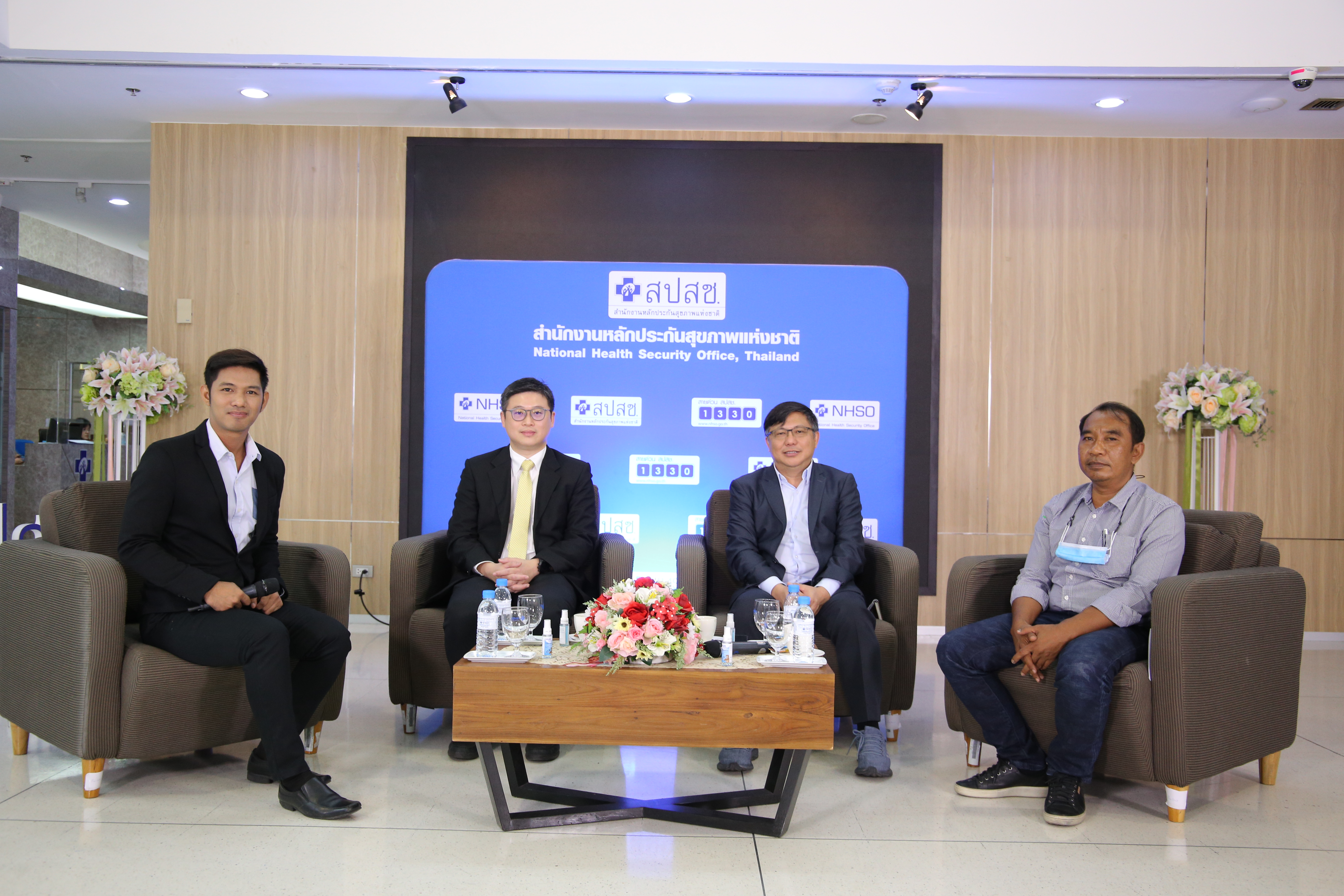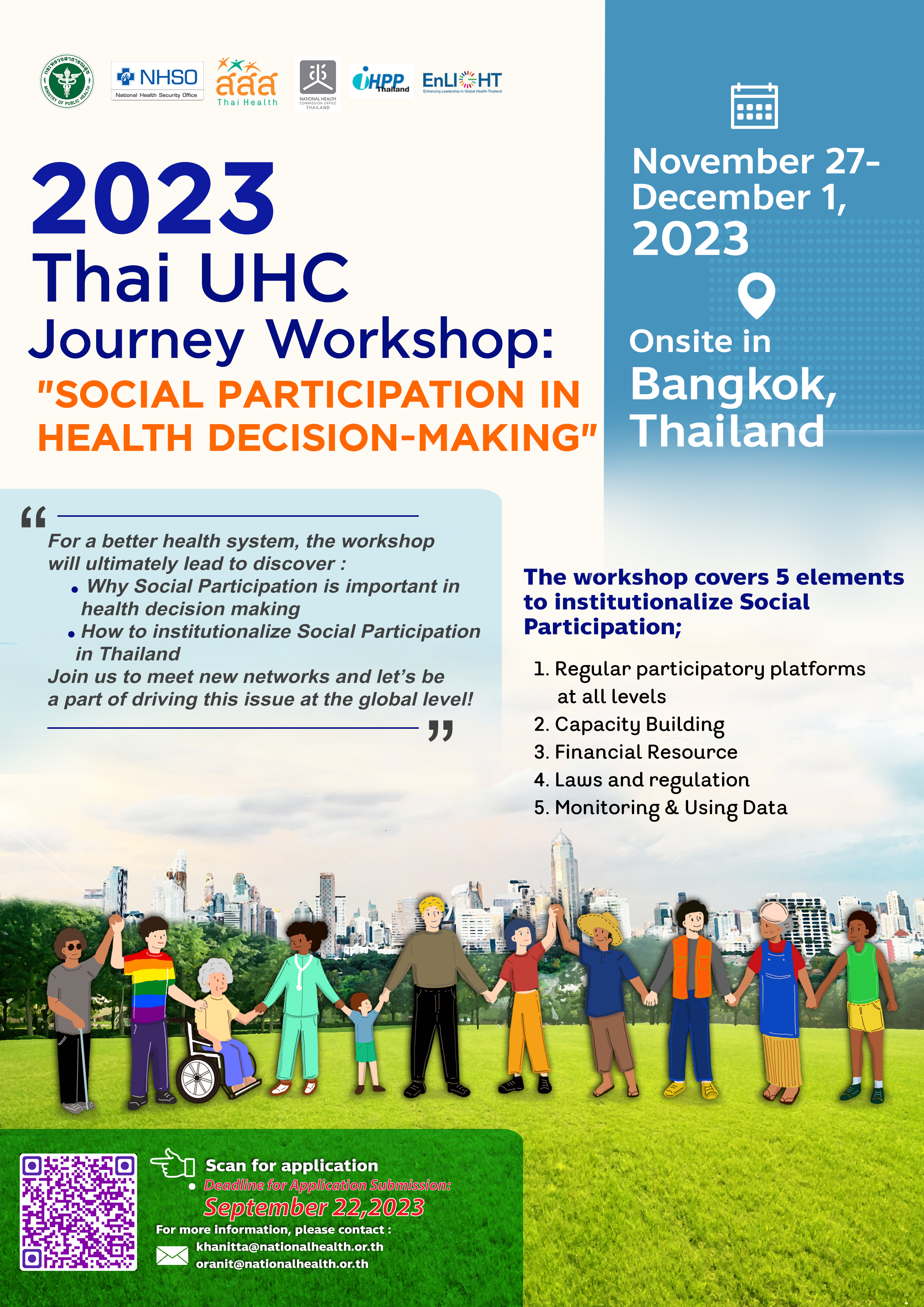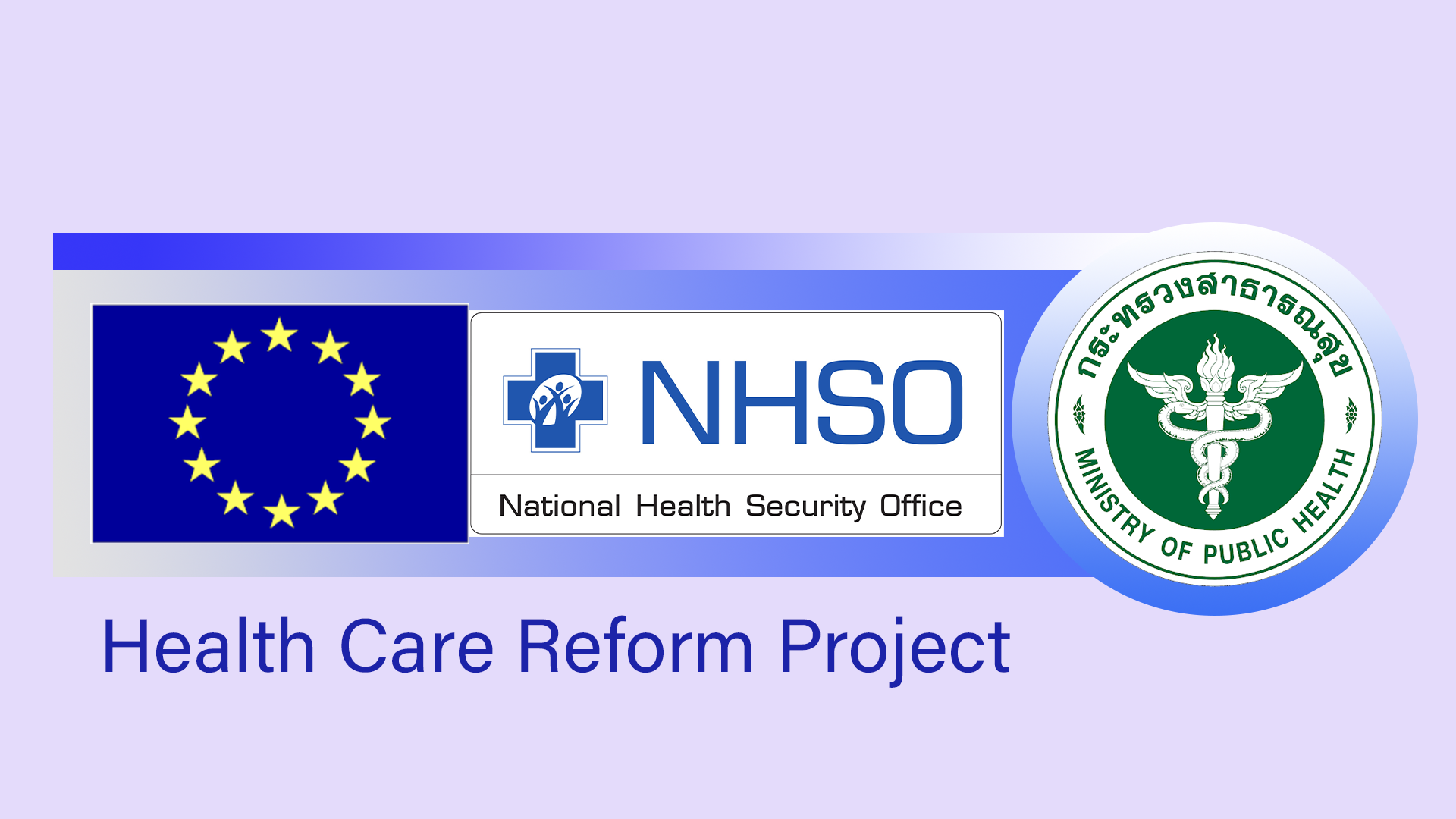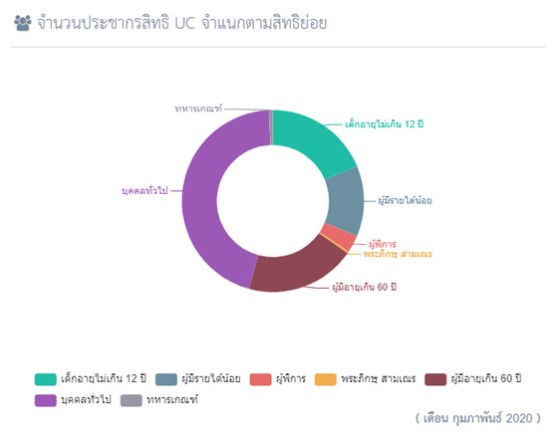Early detection of kidney disease saves lives, money and increase quality of life

Early detection of kidney disease saves lives, money and increase quality of life.
Better access to kidney disease together with public education about kidney failure prevention is the key to success in curbing rising demand for high-cost kidney dialysis and other related types of medical treatment, a seminar was told recently.
The National Health Security Office (NHSO) along with King Chulalongkorn Memorial Hospital, consumer rights protection advocacy groups and associations of kidney patients is calling on the government to approve a proposal to include self-screening tests for kidney disease into the core benefit package of the universal coverage (UCS) scheme, said Dr. Rattaphon Triamwichanon, Assistant Secretary-General of the NHSO.
He was speaking at a seminar entitled “No more premature deaths from kidney failure”. The seminar was organised by the NHSO in Bangkok on Sept 18, 2020.
The kidney disease screening test is a crucial element to ensure that patients with the disease receive proper treatment to slow down disease progression, he said.
Patients with high blood pressure or diabetes and overweight people in particular need to be screened for kidney disease, given their high risk of developing the disease, he said, adding that if early detected, kidney disease won’t unnecessarily have to develop into kidney failure.
There also are some types of kidney disease known to be inherited, which normally are found in young patients, he said.
The NHSO is compiling information about the costs of treating patients with chronic kidney disease and kidney failure for submission along with the proposal to include kidney disease screening tests into the UCS’s core benefit package, he said.
Since kidney disease test kits still aren’t available at affordable prices in Thailand, the only way to get such a test is request for it at a hospital, which normally isn’t easy to get, he said.
“As a nephrologist I think the NHSO has well paved the way for ensuring sufficient treatment for patients with kidney failure,” said Assoc Prof Dr Nattachai Srisawat, head of King Chulalongkorn Memorial Hospital’s centre for medical excellence in critical renal disease treatment.
“And now it’s time to move forward to focusing on detecting kidney disease in its early stages, which will possibly improve the kidney disease situation in Thailand,” he said.
It will definitely be better for anyone to know that he or she has kidney disease in its early stages rather than in the end stage, he said.
“No one ever wants to hear that death sentence,” he said, referring to the end-stage kidney disease.
Assoc Prof Dr Nattachai said a research team at Faculty of Medicine of Chulalongkorn University is developing a cheaper version of imported kidney disease test kits, in a two-year research project funded by Health Systems Research Institute (HSRI).
The test kit being developed had already been tested on the first group of 100 volunteers, he said.
The test kit will be next tested on a larger number of volunteers to ensure its efficiency before the prototype will be given to any private manufacturers interested in mass-producing it, he said.
As for public education about kidney disease, he said, there already is a very active network of kidney patients in the country to help support the work of disseminating useful information about the disease to the public.
Thanaphon Dokkaeo, president of Kidney Disease Friends' Association of Thailand, said the association now has more than 60,000 members who are patients with kidney disease, academics and individuals interested in information about kidney disease.
The association is highly active on the social media in its efforts to reach out to the people who may need correct information about kidney disease, from prevention to treatment, said Mr Thanaphon.
The association also operates a hotline to ensure access to the assistance it is providing around the clock and works together with its partners across the country including tambon health promotion hospitals and teaching hospitals to help kidney patients in all parts of the country, he said.
More Buddhist monks are being encouraged to become members of the association after it had learned that a large number of monks who have kidney disease weren’t receiving proper care due to their lack of information necessary for kidney patients to take care of themselves at home, he said.
“The association serves voluntarily as a one-stop service centre for everyone who needs help or looks for information about kidney disease,” he said.
IN DEPTH
Early detection of kidney disease saves lives, money and increase quality of life

Early detection of kidney disease saves lives, money and increase quality of life.
Better access to kidney disease together with public education about kidney failure prevention is the key to success in curbing rising demand for high-cost kidney dialysis and other related types of medical treatment, a seminar was told recently.
The National Health Security Office (NHSO) along with King Chulalongkorn Memorial Hospital, consumer rights protection advocacy groups and associations of kidney patients is calling on the government to approve a proposal to include self-screening tests for kidney disease into the core benefit package of the universal coverage (UCS) scheme, said Dr. Rattaphon Triamwichanon, Assistant Secretary-General of the NHSO.
He was speaking at a seminar entitled “No more premature deaths from kidney failure”. The seminar was organised by the NHSO in Bangkok on Sept 18, 2020.
The kidney disease screening test is a crucial element to ensure that patients with the disease receive proper treatment to slow down disease progression, he said.
Patients with high blood pressure or diabetes and overweight people in particular need to be screened for kidney disease, given their high risk of developing the disease, he said, adding that if early detected, kidney disease won’t unnecessarily have to develop into kidney failure.
There also are some types of kidney disease known to be inherited, which normally are found in young patients, he said.
The NHSO is compiling information about the costs of treating patients with chronic kidney disease and kidney failure for submission along with the proposal to include kidney disease screening tests into the UCS’s core benefit package, he said.
Since kidney disease test kits still aren’t available at affordable prices in Thailand, the only way to get such a test is request for it at a hospital, which normally isn’t easy to get, he said.
“As a nephrologist I think the NHSO has well paved the way for ensuring sufficient treatment for patients with kidney failure,” said Assoc Prof Dr Nattachai Srisawat, head of King Chulalongkorn Memorial Hospital’s centre for medical excellence in critical renal disease treatment.
“And now it’s time to move forward to focusing on detecting kidney disease in its early stages, which will possibly improve the kidney disease situation in Thailand,” he said.
It will definitely be better for anyone to know that he or she has kidney disease in its early stages rather than in the end stage, he said.
“No one ever wants to hear that death sentence,” he said, referring to the end-stage kidney disease.
Assoc Prof Dr Nattachai said a research team at Faculty of Medicine of Chulalongkorn University is developing a cheaper version of imported kidney disease test kits, in a two-year research project funded by Health Systems Research Institute (HSRI).
The test kit being developed had already been tested on the first group of 100 volunteers, he said.
The test kit will be next tested on a larger number of volunteers to ensure its efficiency before the prototype will be given to any private manufacturers interested in mass-producing it, he said.
As for public education about kidney disease, he said, there already is a very active network of kidney patients in the country to help support the work of disseminating useful information about the disease to the public.
Thanaphon Dokkaeo, president of Kidney Disease Friends' Association of Thailand, said the association now has more than 60,000 members who are patients with kidney disease, academics and individuals interested in information about kidney disease.
The association is highly active on the social media in its efforts to reach out to the people who may need correct information about kidney disease, from prevention to treatment, said Mr Thanaphon.
The association also operates a hotline to ensure access to the assistance it is providing around the clock and works together with its partners across the country including tambon health promotion hospitals and teaching hospitals to help kidney patients in all parts of the country, he said.
More Buddhist monks are being encouraged to become members of the association after it had learned that a large number of monks who have kidney disease weren’t receiving proper care due to their lack of information necessary for kidney patients to take care of themselves at home, he said.
“The association serves voluntarily as a one-stop service centre for everyone who needs help or looks for information about kidney disease,” he said.
Events
Early detection of kidney disease saves lives, money and increase quality of life

Early detection of kidney disease saves lives, money and increase quality of life.
Better access to kidney disease together with public education about kidney failure prevention is the key to success in curbing rising demand for high-cost kidney dialysis and other related types of medical treatment, a seminar was told recently.
The National Health Security Office (NHSO) along with King Chulalongkorn Memorial Hospital, consumer rights protection advocacy groups and associations of kidney patients is calling on the government to approve a proposal to include self-screening tests for kidney disease into the core benefit package of the universal coverage (UCS) scheme, said Dr. Rattaphon Triamwichanon, Assistant Secretary-General of the NHSO.
He was speaking at a seminar entitled “No more premature deaths from kidney failure”. The seminar was organised by the NHSO in Bangkok on Sept 18, 2020.
The kidney disease screening test is a crucial element to ensure that patients with the disease receive proper treatment to slow down disease progression, he said.
Patients with high blood pressure or diabetes and overweight people in particular need to be screened for kidney disease, given their high risk of developing the disease, he said, adding that if early detected, kidney disease won’t unnecessarily have to develop into kidney failure.
There also are some types of kidney disease known to be inherited, which normally are found in young patients, he said.
The NHSO is compiling information about the costs of treating patients with chronic kidney disease and kidney failure for submission along with the proposal to include kidney disease screening tests into the UCS’s core benefit package, he said.
Since kidney disease test kits still aren’t available at affordable prices in Thailand, the only way to get such a test is request for it at a hospital, which normally isn’t easy to get, he said.
“As a nephrologist I think the NHSO has well paved the way for ensuring sufficient treatment for patients with kidney failure,” said Assoc Prof Dr Nattachai Srisawat, head of King Chulalongkorn Memorial Hospital’s centre for medical excellence in critical renal disease treatment.
“And now it’s time to move forward to focusing on detecting kidney disease in its early stages, which will possibly improve the kidney disease situation in Thailand,” he said.
It will definitely be better for anyone to know that he or she has kidney disease in its early stages rather than in the end stage, he said.
“No one ever wants to hear that death sentence,” he said, referring to the end-stage kidney disease.
Assoc Prof Dr Nattachai said a research team at Faculty of Medicine of Chulalongkorn University is developing a cheaper version of imported kidney disease test kits, in a two-year research project funded by Health Systems Research Institute (HSRI).
The test kit being developed had already been tested on the first group of 100 volunteers, he said.
The test kit will be next tested on a larger number of volunteers to ensure its efficiency before the prototype will be given to any private manufacturers interested in mass-producing it, he said.
As for public education about kidney disease, he said, there already is a very active network of kidney patients in the country to help support the work of disseminating useful information about the disease to the public.
Thanaphon Dokkaeo, president of Kidney Disease Friends' Association of Thailand, said the association now has more than 60,000 members who are patients with kidney disease, academics and individuals interested in information about kidney disease.
The association is highly active on the social media in its efforts to reach out to the people who may need correct information about kidney disease, from prevention to treatment, said Mr Thanaphon.
The association also operates a hotline to ensure access to the assistance it is providing around the clock and works together with its partners across the country including tambon health promotion hospitals and teaching hospitals to help kidney patients in all parts of the country, he said.
More Buddhist monks are being encouraged to become members of the association after it had learned that a large number of monks who have kidney disease weren’t receiving proper care due to their lack of information necessary for kidney patients to take care of themselves at home, he said.
“The association serves voluntarily as a one-stop service centre for everyone who needs help or looks for information about kidney disease,” he said.
RESOURCE CENTER
SECRETARY-GENERAL
Early detection of kidney disease saves lives, money and increase quality of life

Early detection of kidney disease saves lives, money and increase quality of life.
Better access to kidney disease together with public education about kidney failure prevention is the key to success in curbing rising demand for high-cost kidney dialysis and other related types of medical treatment, a seminar was told recently.
The National Health Security Office (NHSO) along with King Chulalongkorn Memorial Hospital, consumer rights protection advocacy groups and associations of kidney patients is calling on the government to approve a proposal to include self-screening tests for kidney disease into the core benefit package of the universal coverage (UCS) scheme, said Dr. Rattaphon Triamwichanon, Assistant Secretary-General of the NHSO.
He was speaking at a seminar entitled “No more premature deaths from kidney failure”. The seminar was organised by the NHSO in Bangkok on Sept 18, 2020.
The kidney disease screening test is a crucial element to ensure that patients with the disease receive proper treatment to slow down disease progression, he said.
Patients with high blood pressure or diabetes and overweight people in particular need to be screened for kidney disease, given their high risk of developing the disease, he said, adding that if early detected, kidney disease won’t unnecessarily have to develop into kidney failure.
There also are some types of kidney disease known to be inherited, which normally are found in young patients, he said.
The NHSO is compiling information about the costs of treating patients with chronic kidney disease and kidney failure for submission along with the proposal to include kidney disease screening tests into the UCS’s core benefit package, he said.
Since kidney disease test kits still aren’t available at affordable prices in Thailand, the only way to get such a test is request for it at a hospital, which normally isn’t easy to get, he said.
“As a nephrologist I think the NHSO has well paved the way for ensuring sufficient treatment for patients with kidney failure,” said Assoc Prof Dr Nattachai Srisawat, head of King Chulalongkorn Memorial Hospital’s centre for medical excellence in critical renal disease treatment.
“And now it’s time to move forward to focusing on detecting kidney disease in its early stages, which will possibly improve the kidney disease situation in Thailand,” he said.
It will definitely be better for anyone to know that he or she has kidney disease in its early stages rather than in the end stage, he said.
“No one ever wants to hear that death sentence,” he said, referring to the end-stage kidney disease.
Assoc Prof Dr Nattachai said a research team at Faculty of Medicine of Chulalongkorn University is developing a cheaper version of imported kidney disease test kits, in a two-year research project funded by Health Systems Research Institute (HSRI).
The test kit being developed had already been tested on the first group of 100 volunteers, he said.
The test kit will be next tested on a larger number of volunteers to ensure its efficiency before the prototype will be given to any private manufacturers interested in mass-producing it, he said.
As for public education about kidney disease, he said, there already is a very active network of kidney patients in the country to help support the work of disseminating useful information about the disease to the public.
Thanaphon Dokkaeo, president of Kidney Disease Friends' Association of Thailand, said the association now has more than 60,000 members who are patients with kidney disease, academics and individuals interested in information about kidney disease.
The association is highly active on the social media in its efforts to reach out to the people who may need correct information about kidney disease, from prevention to treatment, said Mr Thanaphon.
The association also operates a hotline to ensure access to the assistance it is providing around the clock and works together with its partners across the country including tambon health promotion hospitals and teaching hospitals to help kidney patients in all parts of the country, he said.
More Buddhist monks are being encouraged to become members of the association after it had learned that a large number of monks who have kidney disease weren’t receiving proper care due to their lack of information necessary for kidney patients to take care of themselves at home, he said.
“The association serves voluntarily as a one-stop service centre for everyone who needs help or looks for information about kidney disease,” he said.
VIDEOS
Thailand's UHC Journey
UHC Public relations












